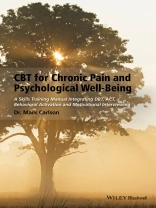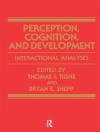The first clinical manual of evidence-based CBT skills for managing psychological issues associated with chronic pain, drawn from current approaches such as DBT, ACT, and motivational interviewing.
* The first skills training manual in the field of chronic pain and mental health disorders to provide an integrated session-by-session outline that is customizable for clinicians
* Adaptive and evidence-based – integrates skill sets from DBT, ACT, Behavioral Activation, and Motivational Interviewing to address the unique needs of individual chronic pain sufferers
* Clinicians can import the approach into their work, selecting the most appropriate skills and sessions, or create an entire therapeutic program with the manual as its foundation
* Includes invaluable measurement and tracking tools for clinicians required to report outcomes
สารบัญ
Acknowledgments viii
1 Introduction to Comorbid Mental Health and Chronic Pain
1
2 Treatment Organization, Outline, and Structure of the
Program 6
3 Clinical Manual for TAG Program 15
Biological Section 15
Goal setting and motivation 15
Functioning and loss 21
Sleep 26
Emergence and patterns 29
Adherence to treatment protocols 33
Complexity 38
Working with your team 41
Psychological Section 46
Orientation to change 46
Readiness to change 50
Depression 54
Anxiety 59
First step toward change 64
Anger management 69
Attending to distress 73
Meaning and pain 79
Stress management 83
Defense mechanisms and coping styles 87
Stigma 91
Chemical abuse 96
Lifespan issues 101
Managing fl are-ups 104
Social Section 108
Managing confl ict 108
The 3 Is 112
Problem-solving 116
Nurturing support systems 120
Social roles in relationships 124
Intimacy 129
Styles of interacting 132
4 Handouts and Homework 136
Master Skills Sheet 223
Appendix – Safety Contract 230
References 231
Index 234
เกี่ยวกับผู้แต่ง
Mark R. Carlson is Founder, President, CEO, and co-owner of
Mental Health Systems (MHS), Minnesota. He is also Vice-President
of the Dialectical Behavior Therapy National Certification and
Accreditation Association (DBTNCAA) and Adjunct Professor
in Psychology at Argosy University, Twin Cities. He served as
the Clinical Director of multiple clinics before leaving to found
MHS.












